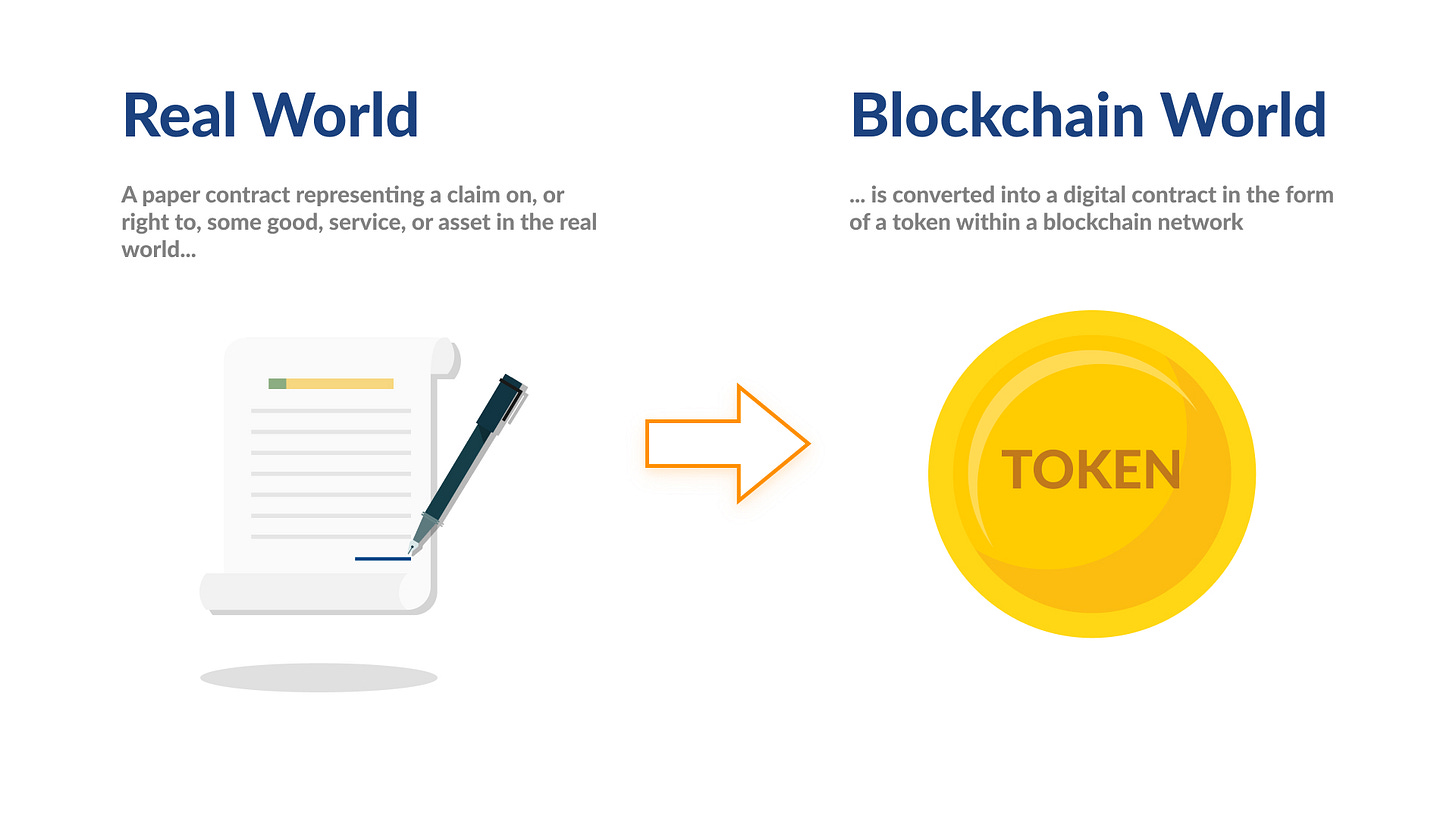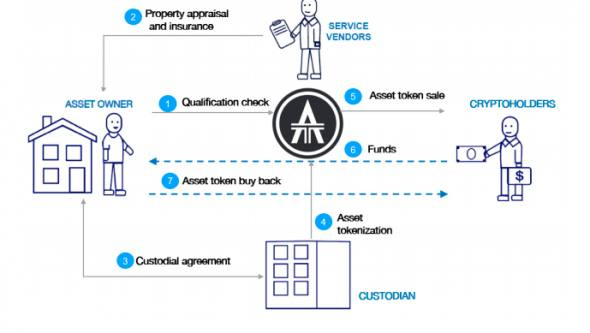Tokenization: The Future of Digital Assets
Finally, an actual use case for blockchain
According to Blackrock CEO, Larry Fink, "the next generation for markets will be tokenization of securities, on a distributed ledger (blockchain)"
For those who aren’t aware, Blackrock is one world’s largest asset managers, with roughly $10 trillion in assets under management. Whether you care about “crypto” or not, tokenization is the future of finance.
What is Tokenization?
Tokenization is the process of converting a physical asset into a digital asset, represented by a token on a blockchain. It may not sound like a big deal, but tokenization will revolutionize the way assets are owned, managed, and traded, providing numerous benefits to both investors and businesses.
What’s the big deal?
When most people think about tokenization, the first thing that comes to mind is increased efficiency. Compare it to e-mail: we went from physical letters that were slow to deliver, to digital letters that are delivered immediately. Tokenization of assets will have a similar effect, offering a much more efficient and cost-effective way to transfer assets.
But increased efficiency and reduced costs are just some of the many benefits of tokenization.
Another key benefit is improved liquidity, with tokenization making it easier for individuals from around the world to buy and sell assets 24/7. There is an estimated $4 trillion locked in private equity and many trillions more in real estate which can be unlocked by tokenization. Boston Consulting Group estimates that by 2030, tokenization of illiquid assets alone (I.e. Real Estate) will be a $16 trillion industry.
Tokenization will also change the way we invest. In addition to the creation of new assets, tokenization will make it possible to own a fraction of assets like real estate, art, and collectibles, making investing more affordable and accessible. For example, if you want to own a piece of land, but it costs $1M and you only have $100K to spare, you can buy 10% of it instead of the whole thing. And the improved liquidity that comes from tokenization with allow for quick and effortless transactions. No longer will you have to wait weeks or months to make a sale (or purchase) - liquid markets make it possible to swap at the click of a button. This is an incredible improvement, and it will give people new opportunities to invest in things they couldn't before.
I’ve just scratched the surface of some of the many benefits of tokenization, but one thing is clear: tokenization is the future.
Who will lead the charge?
There's a famous saying that "not everyone who mined gold got rich, but the people who sold a shovel did". This is a metaphor that explains those who provide the tools and infrastructure for a new industry can often be more successful than those who directly participate in the industry itself, even if it’s a far less “sexy” endeavor.
One company that I’m personally expecting to help lead the charge of tokenization by offering “the shovel” rather than “the gold” is Chintai (their token is CHEX). For the last few years, Chintai has been building the requisite tooling and technology to make it easy for businesses to tokenize and trade digital assets while remaining regulatory compliant. The financial industry spends $181 billion per year on compliance, but by programming multi-jurisdictional compliance rules directly into each token, managing compliance rules can be exponentially less expensive.
The Monetary Authority of Singapore (MAS) has taken a lead role in regulating digital assets, and Chintai is one of only a select few blockchain companies that have been granted a license to issue and trade tokenized securities by them.
Chintai will also provide regulatory-compliant digital assets a gateway to interface with DeFi using their token, CHEX. This means that digital assets that are connected to Chintai's platform may be able to participate in DeFi activities, such as lending and borrowing, in a regulated and compliant manner.
Conclusion
Tokenization will disrupt the financial industry, providing numerous benefits for both investors and businesses. From increased accessibility and liquidity to improved security and reduced costs, the future of finance lies in the tokenization of assets. With the backing of industry leaders such as Blackrock, it's clear that tokenization is the future of finance, and businesses and investors who embrace it will be well-positioned for success.







